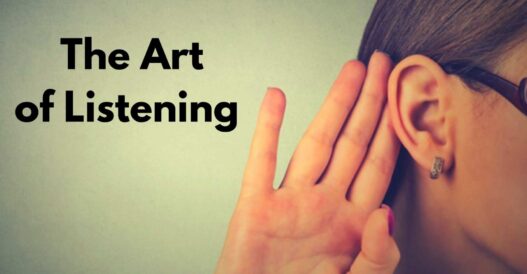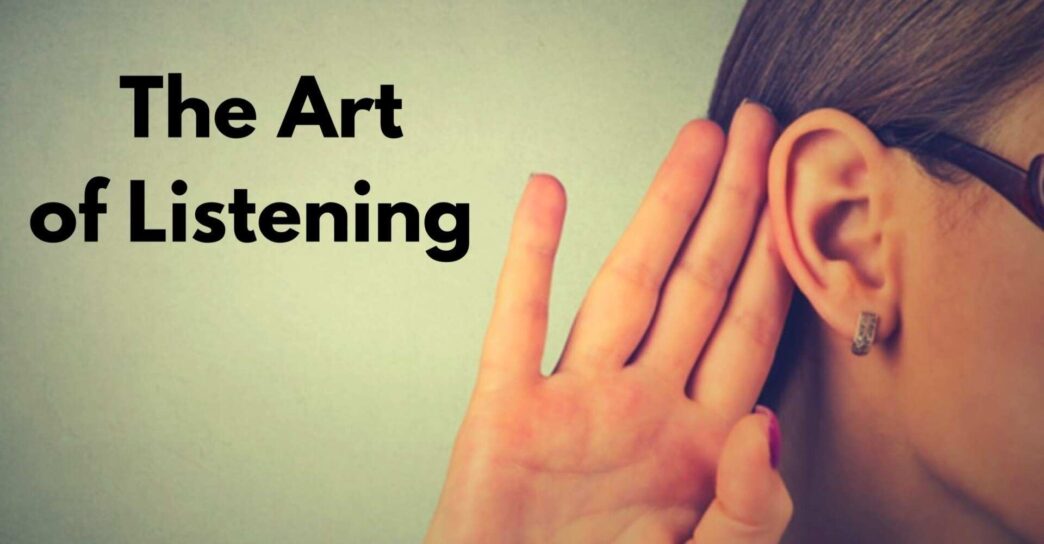In an age dominated by constant notifications, multitasking, and digital noise, genuine listening has become a rare and undervalued skill. While much emphasis is placed on speaking confidently, crafting persuasive arguments, or commanding attention, the act of listening—truly hearing and understanding others—has quietly faded into the background.
This blog explores “The Forgotten Art of Listening,” delving into why this skill has been overshadowed, why it matters more than ever, and how rediscovering the art of listening can transform relationships, workplaces, and personal well-being.
Why Listening Is a Lost Art
The Age of Distraction
Smartphones, social media, and the 24/7 information cycle have fractured our attention spans. Conversations are often interrupted by pings and notifications, leaving little room for meaningful connection.
The Rise of Individualism
Modern culture often prioritizes self-expression over understanding others. In the race to have our voices heard, we sometimes forget the value of pausing to listen.
3. Misconceptions About Listening
Many equate listening with passivity, believing it to be a lesser skill compared to speaking. However, effective listening is an active, deliberate process requiring focus, empathy, and patience.
The Profound Importance of Listening
Listening isn’t just a social courtesy; it’s a cornerstone of connection, empathy, and effective communication. Here’s why it matters:
Builds Authentic Relationships
True listening fosters trust and intimacy in relationships. When people feel heard, they are more likely to open up, creating deeper emotional connections.
Enhances Problem-Solving
Listening allows us to fully understand issues before jumping to solutions. In workplaces and conflicts, this leads to more thoughtful and effective outcomes.
Reduces Misunderstandings
Most arguments stem from poor communication. By actively listening, we can clarify intent and avoid unnecessary conflicts.
Promotes Empathy
Listening helps us step into another person’s perspective, fostering compassion and reducing biases.
Boosts Mental Health
Feeling heard is vital for emotional well-being. Similarly, being a good listener can enhance your own sense of purpose and connection.

The Science Art of Listening
Brain Activity During Listening
When we listen actively, multiple areas of the brain engage, including those responsible for processing language, interpreting emotions, and recalling memories. This complex neural activity underscores the cognitive depth of listening.
The Mirror Neuron System
Listening involves more than words. Mirror neurons in our brains allow us to sense and reflect emotions expressed by others, facilitating empathy and deeper understanding.
The Impact of Poor Listening
Studies show that when individuals feel unheard, they experience heightened stress and diminished self-esteem. This underscores the vital role listening plays in maintaining emotional health.
Barriers to Effective Art of Listening
Busy schedules and constant mental chatter make it hard to focus fully on others during conversations. We often filter information through preexisting beliefs, selectively hearing only what aligns with our views. Instead of truly listening, many focus on formulating their next response, missing key parts of the conversation.
Certain topics or tones can evoke strong emotions, causing us to shut down or tune out. Read more>
How to Rediscover the Art of Listening
Practice Mindful Listening
Mindfulness involves being fully present in the moment without judgment. When listening, give your full attention to the speaker and avoid distractions.
Put away your phone, maintain eye contact, and acknowledge what the speaker is saying with subtle nods or verbal affirmations.
Embrace Silence
Silence can feel uncomfortable, but it creates space for the speaker to share more and for you to process what’s being said.
Tip: Resist the urge to fill pauses in conversation. Instead, use them to reflect or encourage the speaker to elaborate.
Ask Open-Ended Questions
Encourage deeper dialogue by asking questions that can’t be answered with a simple “yes” or “no.”
Example: Instead of “Did you enjoy the trip?” try “What was the most memorable part of your trip?”
Reflect and Paraphrase
Show that you’re listening by summarizing or reflecting back what the speaker has said.
Example: “So, you’re feeling frustrated because the project deadlines weren’t clear, is that right?”
Check Your Biases
Be aware of any preconceived notions or judgments that might color your interpretation of the conversation. Approach each dialogue with curiosity and openness.

Listening in Different Contexts
Personal Relationships
- Scenario: A partner shares their feelings about a tough day.
- Listening Tip: Avoid jumping to solutions. Instead, validate their emotions: “That sounds really stressful. I’m here for you.”
Workplace Communication
- Scenario: A colleague presents a new idea during a meeting.
- Listening Tip: Listen without interrupting. After they finish, ask clarifying questions to show engagement.
- Scenario: A disagreement with a friend or coworker.
- Listening Tip: Focus on understanding their perspective before defending your own. Reflect back their points to ensure clarity.
The Transformative Effects of Listening
Listening creates a sense of safety and validation, making others feel valued and understood. Great leaders are often great listeners. By understanding the needs and concerns of their teams, they inspire trust and collaboration.
Personal Growth
Listening helps us learn from others’ experiences, broadening our perspectives and deepening our empathy.
Why Now Is the Time to Revive Listening
In a world increasingly fragmented by polarization, misinformation, and superficial connections, listening is a revolutionary act. It bridges divides, fosters understanding, and reminds us of our shared humanity.
By prioritizing the art of listening, we can counter the isolation and disconnection that pervade modern life.
Final Thoughts: Listening as a Superpower
The forgotten art of listening isn’t just about hearing words; it’s about truly connecting with others. It’s about creating spaces where people feel seen, valued, and understood. In a noisy world, listening is a superpower—one that has the potential to transform relationships, communities, and even ourselves.
So, let’s put down our phones, quiet our minds, and rediscover the beauty of simply listening.



















